
 Flash News
Flash News
Official/ Massimiliano Allegri is the new coach of Milan
The seal of the ballots will be verified, the first box of May 11 will be opened on Monday
Kosovo-Albania arms trafficking, pistols and automatic rifles seized, 10 arrested
Morning Post/ In 2 lines: What mattered yesterday in Albania
4 cars collide in Fier, two people injured
In parliament since 1991, who are the three "eternal" deputies that we will continue to see in the new Parliament?
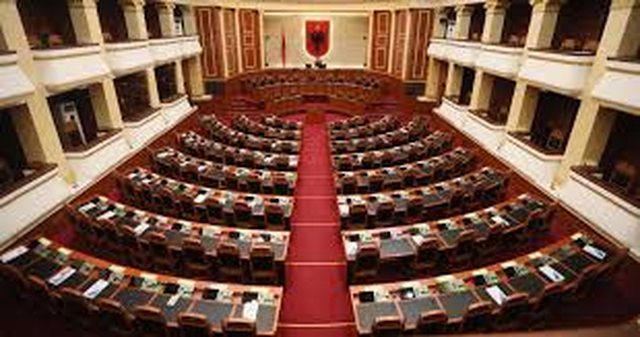
By Afrim Krasniqi
Albania is in 2025. In December 1990, pluralism was allowed, in March 1991, the first multi-party elections were held. Three of the MPs who won in those elections are currently MPs, but have just been re-elected in the 2025-2029 legislature. There are two from the DP and one from the SP. 34 years, until 2029 it will be 38 years. Eternal? Of course, those with many mandates say that we are the best, the most voted, the most capable and honest, acknowledging all the successes to themselves and attributing all the failures of the transition to the other party.
Look at the new parliament: more than 50% are elected for the first time, most of them without political experience and without a clear program/idea for the "new/first job", of course also without full knowledge of the challenges, responsibilities, rights and limits of parliamentary life. Those with a second mandate make up the largest group, a progression that continues with the other groups. Only 3 deputies have 9 parliamentary mandates each and only 1 deputy has 10 parliamentary mandates.
THEY are right. Even when things have gone well or badly for Albania, they have gone well for them. They have been elected or voted for. Despite the fact that they make the law themselves, lead their own party, elect themselves and others, make their own political decisions and determine what the governing and representative system should be, conduct their own analysis of elections, write their own way of how history should speak about them, often even assume the attributes of prosecutor and judge, CEC and Constitutional Court. Legally they are right, they are our product. Morally? Integrity is not yet a standard in political parties, in society, in the state, in promotional structures, nor in public discourse. Therefore, it is not yet a criterion.
The millionth question is, - apart from personal/family success, what is their contribution to society, to the rule of law, to good governance, to a functional democracy or to the progress of the country? What are the measurable parliamentary, political and civic contributions they have brought in about three decades of parliament? What is the reform law that bears their name? What is the decision that identifies them in the public and historical memory as positive and referential models?
The table presents statistics. I know that statistics do not equal 100% the truth, but they are an important tool to help debates and thoughts that lead to some truths. The old parliament is reconvening in 14-minute sessions to produce the same show and the same decision-making as years and years ago, and we are waiting for the new parliament that will convene in September to bring some positive change/reflection for the country. Here, statistics can also help us better understand the theses that democracy is more than procedure, it is content more than form, therefore the future that we have voted for every 4 years, including on May 11, 2025, cannot be anything other than a product and continuation of the present, the past and the phenomena of transition.
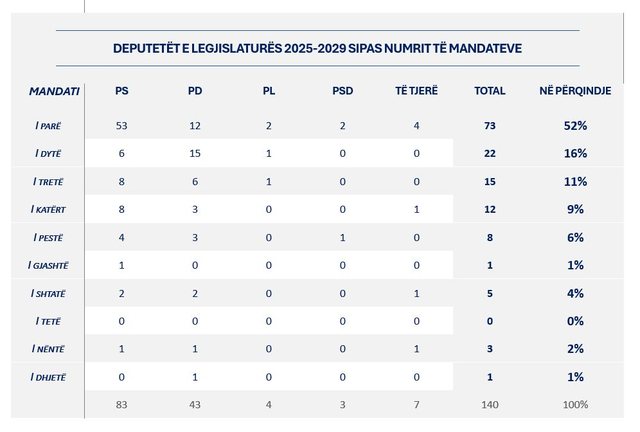
Latest news



DP demands repeat elections for Kukës, KAS postpones review of appeal
2025-05-30 13:04:58

DP candidates demand recount/ Berisha: We are not blocking anyone
2025-05-30 12:41:08
Accused by Russia of supplying weapons to Ukraine, Serbia warns of investigation
2025-05-30 12:33:13

Official/ Massimiliano Allegri is the new coach of Milan
2025-05-30 12:18:45

Former CIA chief reveals the European country Putin will attack next
2025-05-30 12:01:06
"We are a hybrid dictatorship", Goxhaj: PS is a cover for crime and power
2025-05-30 12:00:51
The hearing in the Special Court for the "Metamorphosis" file is postponed again
2025-05-30 11:39:05
Haxhiu: Albania facing a demographic catastrophe
2025-05-30 11:33:39
Child poisoning in Gramsh, AKU: Caused by eggs contaminated with salmonella
2025-05-30 11:19:54
1000 cannabis seedlings in Libofshë, Fier, cultivator arrested
2025-05-30 11:10:12

TENT network, Albania is stuck in the millions allocated for infrastructure
2025-05-30 10:42:42
Vučić accuses the West of "being silent about the events in Kosovo"
2025-05-30 10:32:37
Five early signs that indicate you suffer from high blood pressure
2025-05-30 10:21:42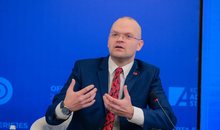

Young man fatally crashes into elderly man with car in Divjaka
2025-05-30 09:58:19

Germans save a lot, but why?
2025-05-30 09:30:13
What are the two most downloaded applications by Albanians during May 2025?
2025-05-30 09:18:28

Foreign exchange, May 30, 2025
2025-05-30 08:58:00
Si ta dalloni një narcisist që në takimin e parë edhe pa shkëmbyer asnjë fjalë?
2025-05-30 08:48:04
Ilir Alimehmeti appeals to the KAS the results of the elections in Tirana
2025-05-30 08:38:15
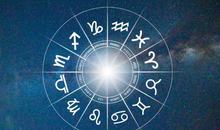
Horoscope, star forecast for today
2025-05-30 08:08:45
Sunny and partly cloudy, temperatures reaching up to 29 degrees during the day
2025-05-30 07:56:04
Morning Post/ In 2 lines: What mattered yesterday in Albania
2025-05-30 07:45:56
How will we escape the regime? Lubonja: Berisha is no longer to blame
2025-05-29 22:57:17



BIRN: Billions missing in economic growth
2025-05-29 22:14:22

Judge's brother bribed prosecutor, worked with gangs, and returned to work
2025-05-29 21:40:15
From Shijak to Lushnje, Berisha shows the armed gangs that helped the SP
2025-05-29 21:29:19


Berisha: Why did Rama hand over the Port of Durres to the Troplini cartel?
2025-05-29 21:08:01
Bylykbashi: This electoral system should have disappeared in 2020, it's not 2008
2025-05-29 20:47:04

KAS decides to open a box in a VC in Vlora
2025-05-29 20:36:19
Vokshi from the CDI Assembly: Europe must react to the electoral farce of May 11
2025-05-29 20:21:22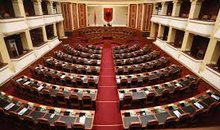


4 cars collide in Fier, two people injured
2025-05-29 19:10:12

Lawyer shocked: A sniper was paid by Albania to eliminate Prime Minister Kurti
2025-05-29 18:53:46



Netanyahu accepts US Gaza ceasefire plan, Hamas 'disappointed'
2025-05-29 17:53:48


He was carrying a weapon in his apartment! A person was arrested in Maliq
2025-05-29 16:59:51
Hamas receives new ceasefire proposal from US
2025-05-29 16:58:27


BIRN: Parliament resumes work, removing the floor from the opposition
2025-05-29 16:08:51
Movement in Tirana Police / Crime, road and urban traffic sectors affected
2025-05-29 16:03:00



Walnut leaves, learn how to use them for health
2025-05-29 15:26:05
Tirana/ 33-year-old man jumps from the third floor of the building
2025-05-29 15:08:38


Rama appeared alongside Brok, Berisha: Elmar's congratulations to him are ironic
2025-05-29 14:47:06
UN: Russia's drone attacks in Kherson, Ukraine, constitute war crimes
2025-05-29 14:37:56
Lek deposits decreasing for the second consecutive month
2025-05-29 14:34:19

Three people involved in drug trafficking are extradited to Italy
2025-05-29 14:08:06


What do we see when we die? The activity of the dying brain provides some clues.
2025-05-29 13:43:08
DP gathers political leaders at blue headquarters
2025-05-29 13:28:52

Checks in Durrës prison, 10 cell phones seized, used by convicts
2025-05-29 13:12:14
Banks worried about property prices
2025-05-29 12:58:06
Marriage on paper, Albanian and American woman accused by the US of fraud
2025-05-29 12:47:14

Socialist MP: I would gladly go to jail if a vote was bought
2025-05-29 12:30:58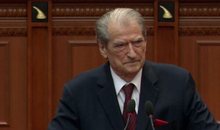

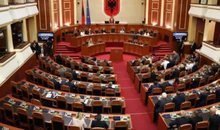
DP demands 60 minutes of debate in plenary session: Change the agenda
2025-05-29 12:07:53


New Parliament/ 82 MPs who will be absent from September
2025-05-29 11:26:35

DP demands repeat elections in Tirana district
2025-05-29 11:09:48



Investigations for Meta, lawyer: SPAK with political agenda
2025-05-29 10:30:41
Sentenced to 1 year in prison, Ervin Salianji requests parole
2025-05-29 10:24:35
